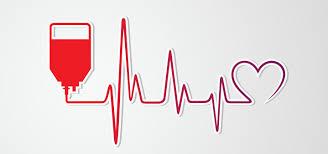Can Cancer Survivors Donate Blood?

One of the most common questions asked by cancer survivors is: can they donate their blood to others? The answer is a resounding yes; they can donate their blood. But there are a large number of factors that govern the nature and frequency of blood donations.
We shall discuss the conditions and the different parameters that are involved in allowing them to donate their blood to needy patients.
If we remember what cancer basically is, we can appreciate and understand why blood donation is such a very important issue.
In its many forms, blood transfusion is one of the effective ways in the fight against this chronic disease, especially leukemia. The risk of spreading from the donor’s body to that of the recipient is highly unlikely, lesser than the risk of the spreading that occurs from organ transplants. Even if its cells are present in the donor’s blood, the recipient’s immune system would promptly destroy these foreign elements. All this was found in a study conducted by researchers looking into the correlation between cancer and blood donation, establishing the very small (if at all any) risk. So it is more or less safe for survivors to donate their blood.
However, taking precautions have always been a hallmark of medical sciences. As far as donating blood by these survivors are concerned, donors need to wait for a prescribed length of time before they actually get to donate blood. This is because it is important to ensure that the patient’s cancer doesn’t come back. Usually, the donor’s period of probation, depending on the nature and its type and the technique of treatment used, can last from a year to five years. Patients undergoing any kind of treatment are strictly advised to not donate blood, as it may cause a risk both to the donor and the patient. Other factors included in the disallowance of donation are the conditions of leukemia or lymphoma or if it comes back or if the donor had had Kaposi sarcoma.
Different blood collection centers and blood banks may have different standards and procedures with regard to these survivors. The time period, they need to be risk-free can vary widely, depending upon the blood collection center’s or blood bank’s guidelines and policies towards safety in the supply chain of blood. Potential donors, whose disease were in situ (that is, whose carcinoma didn’t spread), and whose were successfully removed by surgery need only wait till they are completely feeling well before they are able to donate blood.
It is quite understandable if a carcinoma survivor feels annoyed or irritated with the immense number of precautionary measures.
Their eagerness in saving the lives of others affected by the disease is a noble one and it may come about by their realization of how important blood transfusions are in the fight against this chronic disease. That said and understood, it is imperative to remember, however, that the important goals of blood banking are to ensure the safety of the blood supply chain and the safety of the recipient, the persons receiving the blood transfusions.
About Author: This article is based on inputs from various oncologist in Delhi. You can search,compare,book appointments for treatment of cancer from various cancer hospital in India.
Comments